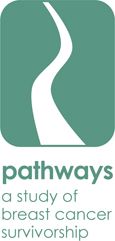Breast Cancer Survivorship Navigation
ZBC is honored to bring together many agencies partnering to better meet the needs of people who have finished active breast cancer treatment. Beginning in 2015, we convened a diverse group of survivors, advocates, community service providers, patient navigators and clinical care providers from around the San Francisco Bay Area and Mendocino (see list below) for the Breast Cancer Survivorship Navigation Project (BCSNP).
Together, we are seeking ways to improve the quality of life of under-served breast cancer survivors and reduce the risk of cancer recurrence. We call our group the Breast Cancer Survivorship Navigation Collaborative (BCSNC). Our group chose to focus on racial/ethnic minorities, gender/sexual minorities and people who have lower incomes. In order to understand the unmet needs experienced by these survivors, in 2017, member organizations developed a survey in English, Spanish and Chinese to ask about their experiences and ideas for improvement.
In 2018, participating organizations asked patients and survivors to answer our questions. We compiled and analyzed the 62 responses, then presented a draft report to respondents and patient navigators. Their input was incorporated into the final patient engagement report, which you can read here. Mental health and cognitive effects of treatment were two of the largest needs identified by the diverse women who participated. Many also reported that the physical side effects of treatment needed more attention and some wanted more information about healthy living (nutrition, stress management, exercise, etc.).
The priorities and suggestions volunteered by respondents are being used by ZBC as a starting point to inform our work on an educational campaign to support the well-being those completing breast cancer treatment in the future and empower them with information about recurrence risks. If you would like to join more than half of the surveyed survivors to keep informed about future BCSNC activities and to provide input into the development of ZBC’s survivorship campaign, email us at This email address is being protected from spambots. You need JavaScript enabled to view it. and include “Survivorship” in the Subject Line.
Check out our Survivorship Resources for links to specific information and some great sites for those who have ever been diagnosed with breast cancer and those who love them.



